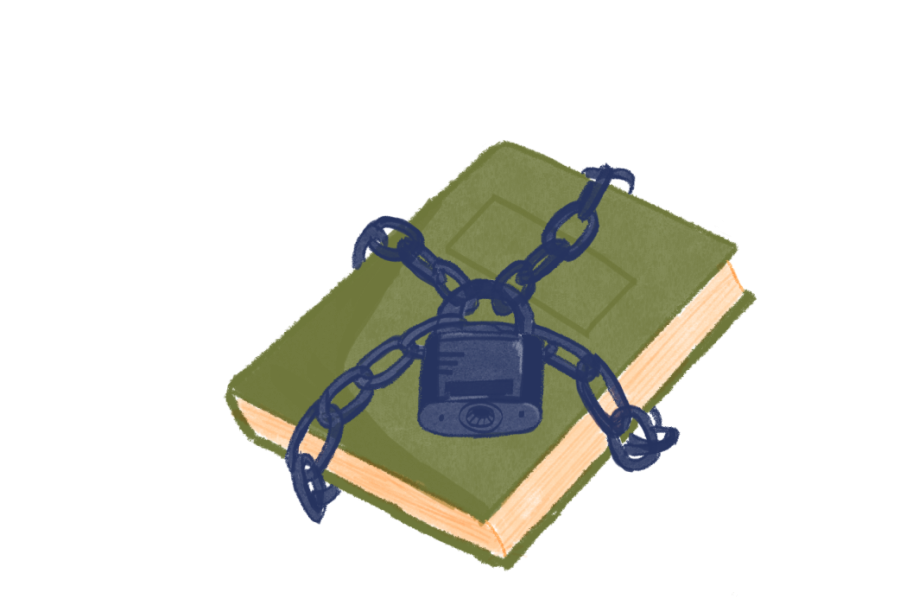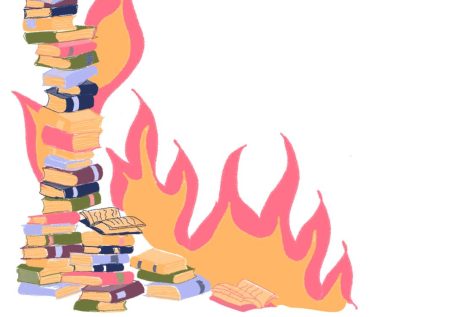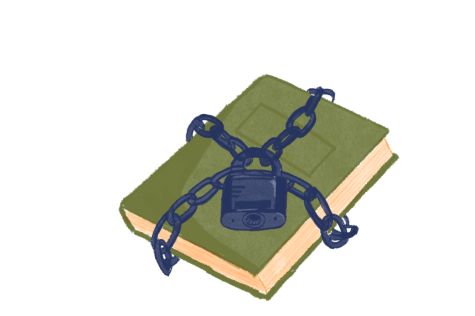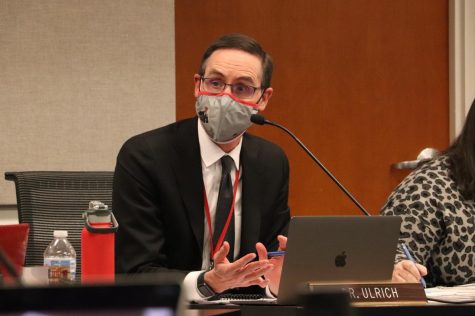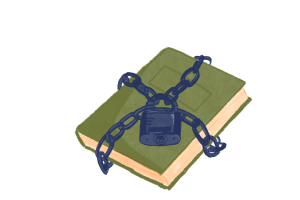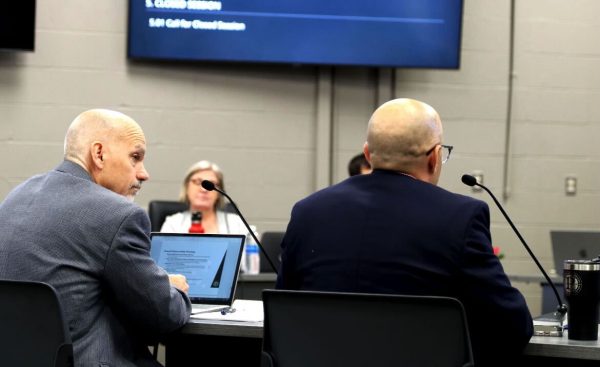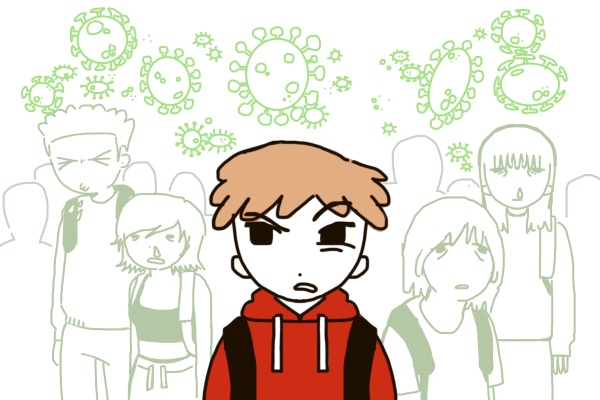KSD bans 14 books
KSD administrators banned 14 books in response to the signing of Missouri Senate Bill 775 once the bill went into effect Aug. 28, the third-most of any school district in St. Louis County, after Rockwood and Lindbergh.
KSD administrators banned 14 books in response to the signing of Missouri Senate Bill 775 once the bill went into effect Aug. 28, the third-most of any school district in St. Louis County, after Rockwood and Lindbergh.
Missouri Governor Mike Parson signed Senate Bill 775, the Sexual Assault Survivors Bill of Rights June 30. Within that bill, there is an excerpt that prohibits schools from providing books that contain explicit sexual content in their libraries. This includes, “any pictorial, three dimensional, or visual depiction, including any photography, film, or video, picture or computer-generated image that contains ‘sexually explicit materials.’”
In a March 2022 TKC article, “Banning books at KHS?,” KSD administrators made it clear that there were no books under review in terms of being removed, but rather the process of how library books are selected was being looked at. The KSD Board of Education was concerned about library specialists following the set policies outlined in Policy IIAC R1. However, since the signage of Senate Bill 775, the concern is now mainly about ensuring all books in KSD libraries follow the outlines of the new law, according to Dr. David Ulrich, KSD superintendent.
“The role of libraries in society is to help people have access to ideas,” KHS Librarian Amy Leatherberry said. “I think anything that stands in the way of that goal is sad.”
KHS librarians, Leatherberry and Janet MeesReinert, said they want libraries to be a place where kids can figure out who they are. They said libraries are places of voluntary access.
“We are trying to provide kids with lots of different ideas, so that they can figure themselves out,” Leatherberry said. “We don’t have an agenda beyond we want kids to have access to ideas, so that they can think about who they are and make the life they want to have.”
If it is found that a school library violates this bill, anyone who is responsible for providing these books could face a Class A misdemeanor and up to a year in jail is possible, according to the bill. Due to the subjectivity of Senate Bill 775, many schools have interpreted it differently. Districts like Maplewood Richmond Heights have taken no action since the bill was put into place, according to the St. Louis Post Dispatch.
Interpretation of the law varies by geography. According to a Post-Dispatch analysis of public records, the following schools districts have reacted to the bill differently:
- Ten school districts in St. Louis city and mostly inner suburbs plan to ignore the law and not change their library collections. University City posted a photo this week of banned books displayed in the middle school library along with a sign reading “We Read Banned Books.”
- Four suburban districts — Francis Howell in St. Charles County and Kirkwood, Lindbergh and Rockwood in St. Louis County — each removed more than 12 books from their schools.
- Wentzville School District banned one book and pulled 223 others “for further review,” including dozens of art history books and “Children’s Bible Stories.”
- Two Jefferson County districts, Fox and Festus, banned no books. A Festus spokesman clarified that materials falling under the law “were never in school libraries in the first place.”
Some students are concerned about the banning of these graphic novels and said they are worried for the future of KSD libraries. Emily McGlasson, freshman, is dyslexic and said that graphic novels help her with her reading.
“I only read graphic novels,” McGlasson said. “I was absolutely devastated when I first [was informed of] the law. People who can properly read can get media that is no longer accessible to me [because they can imagine what is going on]. I just don’t have a lot of choices to go through anymore. The graphic novel section is [now] incredibly small [at KHS].”
Ulrich outlined the process of removing library books since the new law went into place. Once Senate Bill 775 was put into action, KSD librarians have been reviewing each book that contains any visual images. Leatherberry said that the amount of time it takes to review depends on the size and amount of pictures it contains. There is not a set timeline. Once they review the book, they send it to the central office, where Dr. Bryan Painter, assistant superintendent of curriculum & instruction, and Ulrich then review the content. If they believe the book violates Senate Bill 775, they hand it to the KSD’s legal counsel, the district’s lawyers.
Ulrich said that while certain graphic novels have been removed from the libraries, the chapter book versions are still available to read for students. Ulrich said some of the community members might be confused by this, based on the board meeting Sept. 27.
“The Handmaid’s Tale [is the best example],” Ulrich said. “The graphic novel was identified by our librarians and then brought to the legal counsel and identified as [violating the law]. Running parallel to that, I think it’s important to let people know that the novel is still in our library.”
The graphic novel was removed because it contains pictures of nude bodies, whereas the novel does not include any pictures. However, this still affects students like McGlasson, who said novels tend to overwhelm her. She said that graphic novels give her the ability to read the same books as her peers.
“I can’t read regular chapter books.” McGlasson said. “It’s not just because I’m dyslexic, it’s just looking at regular books is intimidating to me. It fills me with a lot of anxiety to look at a chapter book. Mainly because I’ve been discouraged my entire life about not being able to read. People have told it to me so many times that I’ve started to believe it myself. I can’t look at a [chapter] book and be like ‘I can totally do this.’ Graphic novels are a lot easier and less overwhelming.”
Ulrich said the librarians are still reviewing books that contain any type of visual depiction. As books are still being looked at, there is potential of more graphic novels being removed from KSD libraries.
Your donation will support the student journalists of Kirkwood High School. Your contribution will allow us to purchase equipment and cover our annual website hosting costs.

She/Her
Hobbies and Interests: dancing, reading, shopping, fashion, writing
Favorite song: All Too Well by Taylor Swift
Favorite Quote: "I like...


